Tuesday Feb 24, 2026
Tuesday Feb 24, 2026
Friday, 21 December 2018 00:00 - - {{hitsCtrl.values.hits}}
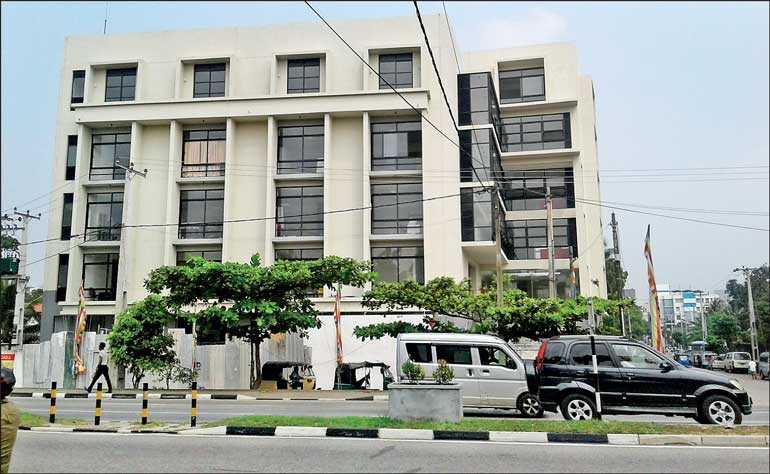
The passage of the 13th Amendment to the Constitution of Sri Lanka witnessed the birth of the Finance Commission in 1987. The 19th Amendment of the Constitution in 2015 reconstituted the Commission along with 8 other Independent Commissions.
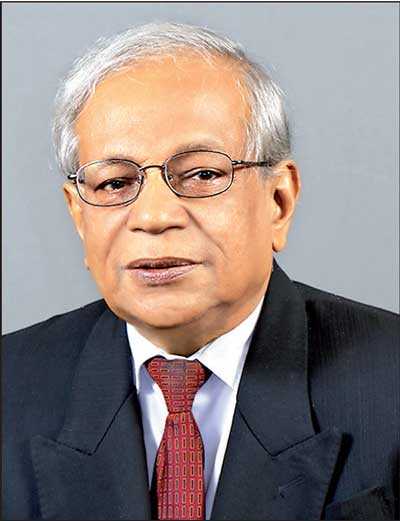 |
U. H. Palihakkara, the Chairman, FC |
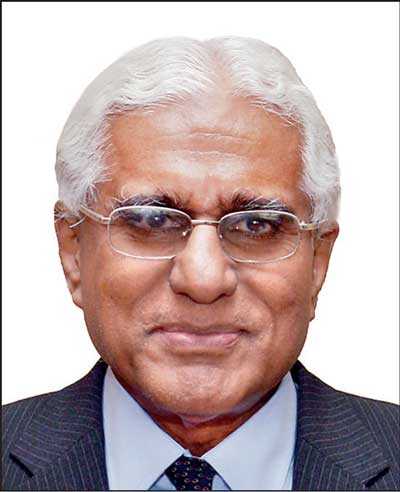 |
Dr. Indrajith Coomaraswamy, the Governor of the Central Bank of Sri Lanka, Ex-officio Member FC |
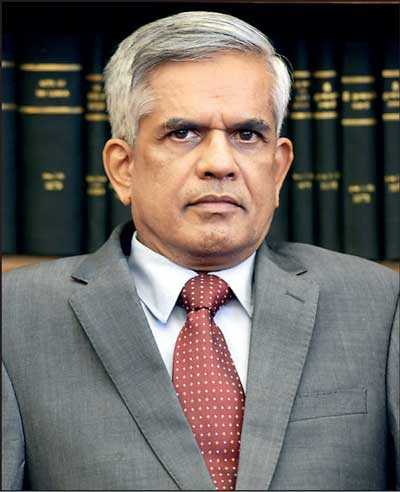 |
Dr. R.H.S. Samaratunga,the Secretary to the Treasury, Ex-officio Member FC |
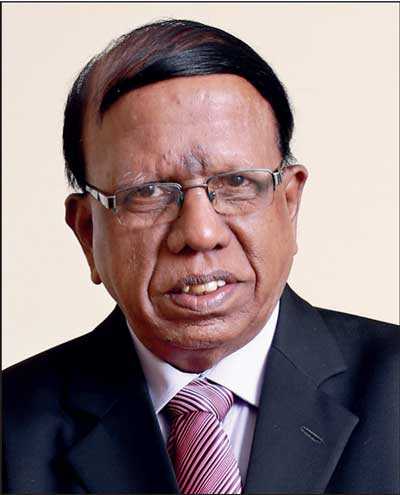 |
V. Kanagasabapathy, Member FC |
 |
Professor H. M. Zafrullah, Member FC |
On the recommendation of the Constitutional Council, the President appointed the following Members to the Finance Commission on 13 November 2015 for a period of three years. The Commission comprises:
1. Chairman: U.H. Palihakkara
2 Ex-officio Member: Dr. Indrajit Coomaraswamy, the Governor of the Central Bank of Sri Lanka
3. Ex-officio Member: Dr. R.S.H. Samaratunga, the Secretary to the Treasury
4. Member: V. Kanagasabapathy
5. Member: Prof. H.M. Zafrullah
A.T.M.U.D.B. Tennakoon functions as the Secretary of the Commission.
It is an opportune time for reflection and introspection on the journey of the Finance Commission over the last three years, 2016-2018, in the accomplishment of its mandate, which is pivoted mainly on Balanced Regional Development (BRD) of the country.
During the period, a number of significant steps were taken to position the Finance Commission for its long-term performance and progress, with a firm resolve to turn this important organisation into an efficient and strong Independent Commission for effective discharge of its mandated functions, contributing to the development of the national economy, ensuring transparency and accountability.
Immediately upon taking over of office in November 2015, the Commission started implementing a robust reform agenda with the formulation of a well-conceived Annual Activity Plan for 2016. This reform-roadmap was designed to steer the Finance Commission for an effective organisation with all critical prerequisites. In the context of the Activity Plan, during the year, the Commission set itself another challenge to examine its governance structure and embarked on a Strategic Plan (2017-2020), a blue print for achieving the Commission’s mission and major goals.
The Annual Reports of the Commission give a detailed account of its activities and accomplishments. During the three-year period the Commission had initiated a number of decisive steps and embarked on some special studies for redressing regional disparities and framing important polices.
With a view to carrying out the role of the Commission effectively, a Manual of Internal Policies and Procedures has been formulated based on the regulatory framework applicable to Government Ministries and Departments, pending formulation of specific guidelines applicable to Independent Commissions.
The Finance Commission is entrusted with the task of recommending adequate funds to provinces and to recommend principles to the President on the apportionment of such funds between the provinces. In performing this task, the Finance Commission assesses the needs of the provinces and makes recommendations for fund distribution among the provinces, adopting a rational basis for fund allocation using a composite formula developed with the support of the Department of Census and Statistics, and providing proper guidelines for Provincial Councils with a view to aligning provincial investments in line with the national development polices and strategies. In this context, the Commission developed a broad framework for aligning of policies and strategies with Sustainable Development Goals (SDGs), a vital requirement for fulfilling Sri Lanka’s commitment to achieving SDGs by 2030.
The Commission’s recommendations to Provinces on Provincial Specific Development Grants (PSDG) are based on the sectors given in the relevant Lists of the 13th Amendment to the Constitution. In this regard the Commission has embarked on several sector studies such as health, education, irrigation, agriculture and social services, etc. which are used in the making recommendations to the President, as well as in fund allocations to provinces.
In addition, a number of special studies were conducted to address regional disparities and framing important policies. These include, imbalances between provincial revenue and expenditure, identification of weaknesses and anomalies between fund allocations to provinces due to lack of coordination in overall macro planning, budgeting and accounting aspects and unbefitting needs assessment methods.
However, the published statistics point to the fact that such allocations constitute a meagre fraction of the Government’s total annual budget, and intra and inter-regional disparities yet continue. This is mainly due to allocative inefficiencies, regarding which, in the recent past, the Commission has taken a number of positive steps, including promotion of resource mapping, master planning, Database/Management Information System (DBS/MIS) development, and improved coordination between the relevant government ministries/departments, and other agencies. To this end, the Commission, among other matters, dived into some major policy initiatives.
A Revenue Performance Grant (RPG) has also been introduced in order to encourage provincial revenue generation. This is a development-oriented grant, linked to devolved revenue collection, and the provinces will have discretionary power to use the grant for capital related development programs. Furthermore, the Commission has also contributed towards the preparation of an Action Plan for enhancement of revenue in Local Authorities, and in the formulation of the relevant amendments to the Municipal Councils Ordinance, Urban Councils Ordinance and Pradeshiya Sabha Act, by the Ministry of Provincial Councils and Local Government.
The Code of Governance adopted in December 2017 and the Finance Commission Bill, awaiting the Attorney General’s clearance for enactment, and the ongoing exercise for DBS/MIS development will pave the way for an effective and prudent management for the long-term success of the Commission.
Previously the Commission was housed in a small rented out premises without much space for effective operations. In 2016 the Commission commenced the construction of its new office complex at Sarana Mawatha, Rajagiriya. The foundation stone for the office complex was ceremonially laid by Speaker Karu Jayasuriya, the Chairman of the Constitutional Council, in the presence of many distinguished guests on 24 November 2016.The building is now complete and the Commission is housed in the new building. It will be officially declared opened shortly. The total cost of the project is Rs. 442 m and it is fully funded by the Government.
With regional development planning gaining emphasis, reformulating and re-articulating theoretical and policy views on the globalisation of regional development is critical. In this regard the Finance Commission initiated action in joining hands with other parallel institutions elsewhere, especially in the South Asian region. It is expected that with this move the wealth of experience amassed by the Finance Commission as well as other similar institutions created for sub-national affairs would provide a platform to share their knowledge and wisdom for sound spatial economic development planning.
In line with its wish and desire to be strong and vibrant, the Commission remains committed to its primary target of “reducing regional disparity” and Sri Lanka’s march toward greater prosperity. There is no doubt that the Finance Commission faces continued challenges to cope with the increasing demand for better allocation of financial resources in the provinces in terms of quality of service. It hopes to formulate a more comprehensive Corporate Plan with realistic and transparent Key Performance Indicators (KPIs) targeting better organisational performance for creating value, and enriching the lives of the people.
In a rapidly-changing environment, success depends upon revisiting approaches and methods, and adapting to the needs of the day. All of these new directions will not only reflect the Finance Commission’s increasing and ceaseless endeavour to ensure its commitment for excellence in service delivery, but also that of the aspirations of all Sri Lankans. The Commission’s dream is to model itself to play an integral role in regional development governance of Sri Lanka. The Commission’s clear vision and the roadmap for the future are intended to invigorate it with efficiency, effectiveness, and integrity. Continued striving for the fulfilment of the Finance Commission’s mission will provide an impetus to all sectors of the economy, in particular the underperforming sectors in the provinces.
Whist acknowledging and deeply appreciating the unstinted support and cooperation of all, especially the President, the Chairman of the Constitutional Council, Chief Ministers of Provincial Councils and their staff, General Treasury, Central Bank, the Auditor General, Legal Draftsman’s Office, Members of the Commission, the Secretary and staff of the Commission, the Finance Commission envisages the momentum of its transformation over the three-year period would continue for socio-economic upliftment of the country.